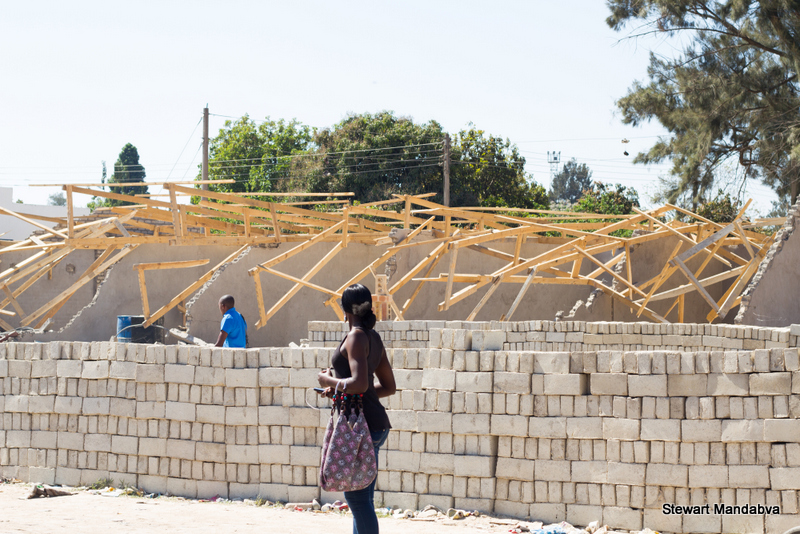
The Ministry of Local Government has done what is sadly familiar.It has sanctioned the demolition of homes, not just houses, by local authorities in Chitungwiza, Manyame and Epworth.
GUEST COLUMNIST TAKURA ZHANGAZHA

As though to spite the families of these households, these undemocratic actions were undertaken in the middle of the night or early hours of the morning last week Thursday and Friday respectively.
With the assistance of demolition vehicles and the Zimbabwe Republic Police, local councils were at their most callous.
Watching some of the directly affected residents being interviewed on the State broadcaster’s evening news bulletin, a number of issues become apparent. The first is that the reasons being given by both the responsible ministry and the local councils appear rational on paper, but are essentially dishonest, arbitrary and elitist in import.
In statements attributed to Deputy Minister of Local Government Biggie Matiza, the media reported that the government is persuaded these houses were built illegally on land that in original town plans were intended for clinics, schools and churches.
This is in tandem with declarations also made by the local authorities in the areas concerned, but with the caveat that they were following orders from central government.
The reality of the matter is that these undemocratic actions are not the result of people-centered local or central government for a number of reasons.
- Chamisa under fire over US$120K donation
- Mavhunga puts DeMbare into Chibuku quarterfinals
- Pension funds bet on Cabora Bassa oilfields
- Councils defy govt fire tender directive
Keep Reading
In the first instance, the houses were constructed with the complicity or even direct participation of elected officials in both local and central government. Building a house is never an overnight process.
And it requires plans, resources and general approval by a given authority. Some of the houses that were demolished have been standing for over five years. For government, at both local and central levels, to want to claim a Damascene moment by turning around and saying the land allocations were illegal all along is to demonstrate a peculiar insensitivity to the plight of citizens.
Primarily because not only have these houses been built under their aegis, but also because there is no tangible option of alternative housing for those that have since been not only evicted, but had their houses brought down.
So both local and central governments are trying to give an air of rationality to what is essentially their deliberate undemocratic misleading of home seekers.
The other more significant consideration is that these demolitions, apart from being undemocratic, are symptomatic of new battles for land in urban and peri-urban areas. Both by elected local councils and traditional leaders.
The character of these land contestations are related to the profitability of getting councils and central government to approve the conversion of previously State or traditional leader-controlled land to urban usage.
In the cases of Chitungwiza, Epworth and Manyame, it is evident that there was corrupt collusion between local government officials, construction companies [even if they are small], ruling and opposition party provincial politicians and central government to offer stands to the homeless without the guarantee of permanence. Even at great cost to poor families.
All in quick bids to make quick money at the expense of the homeless and economically vulnerable.
That is the real reason why these residential stands were allowed to exist for prolonged periods of time.
It was and remains a complex web of kleptocracy involving the central State, local government, wannabe real estate agents and corrupt politicians.
At a national scale, the problem is continuing to emerge with rash decision to give town status to previous growth points in order to aide the purchasing of land by large contractors who then on the basis of political affiliation and connections sell these to the desperately homeless.
This, regardless of the fact that local councils do not have final long-term planning frameworks for establishing these new residential areas.
Given the acute shortage of housing in Zimbabwe, particularly for young families, it becomes understandable that the desperation leads to quick uptakes of these illicitly acquired residential stands.
And this is undertaken with very little questions asked except for party card affiliation and the prospects of either running a little business or building a house in which one can place lodgers in order to raise much-needed revenue.
No matter whether one is with the ruling Zanu PF party or the mainstream MDC oppositions.
As a result, what we have obtaining is a housing system that relies largely on the money-making intentions of national/local politicians, private building contractors and corrupt local councils. These demolitions are not the last nor are they the first.
From the infamous Operation Murambatsvina through to the tragic events of last week, what we have is an evident housing system based on political patronage which unfortunately is ephemeral, corrupt and in the final analysis being treated as a money making enterprise.
It would do well if the residents associations reminded government, both local and central that housing is a human right.
Even after the event of tragic demolitions.











